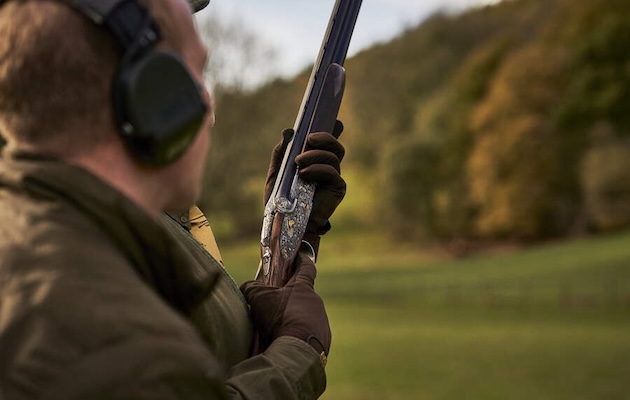We asked a few leading shots for their opinion. Here's what they said in the over-and-under and side-by-side shotgun debate
A panel of shooting experts was asked to comment on the following qualities commonly associated with over-and-unders. (Read Mike Yardley’s article on the enduring appeal of the side-by-side shotgun.)
- They have a single sighting plane – but why does that work when so often we’re not conscious of seeing the barrels when we shoot?
- They are heavier – so more akin to the old 30in-barrelled side-by-sides shot by Ripon and Walsingham and live-pigeon competition guns – and so provide more inertia for the swing and better absorption of recoil.
- They have big fore-ends, single triggers and pistol grips, so hand placement is more accurate and consistent.
- They tend to have 23⁄4in or 3in chambers, allowing them to cope with a wide range of loads including steel.
- The recoil is felt differently, so the first barrel recoil is low in the shoulder, producing less barrel flip than a side-by-side and thus allowing a far more accurate second shot.
Pointability and comfort
Mark Marshall, head coach at EJ Churchill, said: “All these points are valid. Gun fit is definitely more important with the side-by-side: 1⁄4in too short and you get bruised on your middle finger, 1⁄4in too long and you get a bruise on your arm. Cast is also more important on a side-by-side as it’s harder to see if you are centre or not. As for ‘pointability’, if I gave someone a ruler to point at something accurately I guarantee they will subconsciously turn it on edge. After all, we point a shotgun, we don’t aim it, and I think this is a major reason for the over-and-under’s success.
“So for me the reason most shoot better with an over-and-under comes down to pointability and comfort,” says Marshall, “And the fact they have probably shot in the past with badly fitted side-by-sides. However, there is nothing wrong with a well-fitted, 30in-barrelled side by side as long as you don’t need to fire loads heavier than 30g.”

The Purdey sidelock side-by-side is built on the action patented by Frederick Beesley in 1880
Shoot better
Steve Rawsthorne of the Holland & Holland Shooting Grounds says of the debate on over-and-under or side-by-side, “There is no doubt that the vast majority of shooters shoot better with an over-and-under than a side-by-side. If it weren’t so, all competitive shooters would be using side-by-sides, rather than having a separate ‘handicap’ class for them.
“The modern over-and-under is a tool designed for the job,” continues Rawsthorne. “Ideally, firing the lower barrel first, it delivers the recoil lower into the shoulder than a side-by-side and in a straight line, producing less ‘felt’ (perceived) recoil so that one is on to the second shot more quickly and smoothly. The extra weight of an over-and-under translates into less perceived recoil, too. The pistol grip, usually with a single selective trigger, means that the rear hand is at a more natural angle compared to the hand position created by the straight-hand stock of the classic British side-by-sides, which cocks the wrist of the rear hand at an unnatural angle. The fore-end of an over-and-under gives the leading hand – which should be controlling the gun throughout the mount and shot – something to grip, as opposed to a side-by-side where one is holding the barrels.
“The single sighting plane of the over-and-under leads the eye more naturally towards the target, rather than the double expanse of barrels and rib of a side-by-side,” says Rawsthorne. “And while one should not be looking at the barrels during the shot, one needs to be aware of them in the peripheral vision while the central focus is on the target; the barrels of an over-and-under obscure less of the target and surrounding area.”
Easier to shoot
Ian Coley says: “Over the past 30 years the side-by-side market has been decreasing. A lot of this is down to the new, modern over and unders being so much easier to shoot and, most importantly, more pleasant to shoot in terms of recoil.” (Read more on gun recoil here.)
Edward Watson of Dr Watson Shooting says: “With an over-and-under you have a much better view of the bird when the gun is mounted due to the gun’s single sighting plane. Our eyes are lazy and will always try and look at the closest thing, ie the barrels. And the more the barrels intrude into our vision, even our peripheral vision, the more our eyes will want to look at them and not the bird. And if you look at the barrels and not at the bird you’ll usually miss. That’s why shooting an over-and-under is 30% easier than with a side-by-side.”
This article was originally published in 2022 and has been updated. Read our full article on the over-and-under vs side-by-side debate here.





